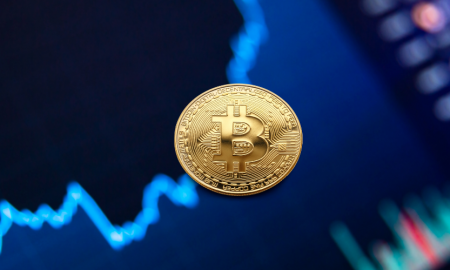
New U.S. Tariff Rules Raise Online Shopping Costs for Americans

The price tags on your favorite budget-friendly finds from Shein, Temu, or AliExpress may suddenly seem a lot less appealing—and it’s not just inflation. A new wave of tariffs has just gone into effect, and this time, it’s hitting home for millions of everyday shoppers across the U.S.
A long-standing shipping rule that let Americans buy low-cost goods from overseas without incurring extra fees expired just after midnight on Friday. Known as the “de minimis” exemption, this loophole allowed packages valued under $800 to enter the U.S. tariff-free, skipping most inspections and paperwork.
The policy played a huge role in fueling the fast-and-cheap shopping experience many consumers grew used to. But now, that convenience has a price tag—often a steep one.
How the Tariff Shift Impacts Everyday Shoppers

Instagram | upwardnews | Temu and Shein’s cheap Chinese goods may double in price due to new tariffs.
This isn’t just policy jargon—it’s affecting carts and checkout screens everywhere.
Under the new rules, Chinese imports are now facing base tariffs as high as 145%, depending on how they’re shipped. That could more than double the cost of products from platforms like Temu and Shein, known for their deep discounts and rapid shipping.
Here’s how that plays out in real life:
1. Goods via UPS, DHL, and FedEx – Face a baseline 145% tariff and possibly more depending on product category
2. USPS shipments – Now carry a 120% baseline tariff or a flat $100 fee per item, increasing to $200 starting June 1
3. Shein and Temu users – Already seeing price bumps and reduced product availability
For consumers, especially those living on tight budgets, the impact is immediate. According to recent economic research, nearly half of these duty-free packages previously went to the country’s poorest ZIP codes. Now, the price hikes are hitting hardest where affordability matters most.
What’s Changing
The shift in tariff policy isn’t just a tax; it’s a disruption to how Americans have grown used to shopping. The de minimis rule allowed over 1.3 billion packages into the U.S. last year without major fees, many of them small, everyday items—dog toys, craft kits, storage bins, even phone accessories. Over 80% of U.S. e-commerce shipments in 2022 were classified as de minimis, and most originated from China.
When a similar change affected shipments from Hong Kong earlier this year, chaos followed. USPS stopped delivering parcels from the region for a time, and many customers were left wondering where their packages went. Now that the exemption is gone entirely for China, delays and increased costs are expected to become the norm.
According to U.S. Customs and Border Protection, their team is prepared to enforce the updated rules. “We’ve increased screening and are ready to implement the necessary inspections,” a spokesperson said in a statement to CNN. Major carriers like FedEx and DHL say they’ve added staff to handle the expected rise in paperwork and shipping issues.
Retailers Respond

Instagram | environment | Acknowledging price rises, Shein points to global trade shifts and higher operating costs.
Retail giants like Shein and Temu aren’t taking this lightly. Shein has issued a public notice acknowledging the price hikes, attributing them to global trade changes and higher operating expenses.
“We’re doing everything possible to keep our products affordable,” Shein shared in a message to its customers, “but recent changes in trade policy have forced us to adjust our prices to maintain quality.”
Temu, meanwhile, is trying to localize its operations. A company spokesperson explained that they’re transitioning to a model where more U.S.-based sellers fulfill orders. “Temu’s pricing for U.S. customers remains stable as we focus on domestic sourcing,” the spokesperson said.
Still, users are noticing the difference. One Reddit user mentioned their cart dropped from over 300 items to just two due to limited availability and new minimum order fees. “Temu’s not the same anymore,” they wrote. “Most of the stuff I wanted isn’t even available locally.”
Political Ripple Effects and Public Reaction
Former President Trump called the de minimis policy “a big scam” during a recent cabinet meeting. “We’ve put an end to it,” he said, emphasizing the goal of protecting American businesses.
But not everyone agrees with the outcome. A recent CNN poll found that 59% of Americans believe Trump’s policies have worsened the economy. And 6 out of 10 respondents said they’ve seen the cost of living go up in their communities due to these changes.
For millions of Americans, the effect of this new tariff isn’t some distant economic theory—it’s a higher total at checkout, fewer affordable options online, and more headaches when it comes to shipping.
As the dust settles, one thing is clear: international trade policies aren’t just for economists to debate—they’re now showing up on your doorstep, one pricey parcel at a time.
More in Business
-
`
Will Bitcoin Crash to $0 or Hit $500K in a Decade?
Bitcoin’s future divides analysts into two extreme camps. Some see it becoming one of the most valuable financial assets in history....
October 12, 2025 -
`
Can Anyone Really Blame Mariah Carey for ‘Leaving’ the Real World?
Mariah Carey isn’t like the rest of us. From the moment she opens her mouth and that voice pours out, she...
October 10, 2025 -
`
Intel Invests in Nvidia, but Ratings Remain Unchanged
Intel’s stock jumped more than 30% after news broke that Nvidia poured $5 billion into the company. The rally sparked renewed...
October 5, 2025 -
`
Homeownership vs. Real Estate Investment: What’s Better?
Homeownership has long been seen as the American dream. But today, more people are asking: Is it really the smartest way...
October 3, 2025 -
`
Why the Armani Fashion Empire Is Set for an IPO
Giorgio Armani, one of the most iconic names in global fashion, left behind a detailed plan for the future of his...
September 27, 2025 -
`
Why Do Pokémon Cards Outperform the S&P 500 As an Investment?
Pokémon cards have outperformed the stock market by a mile. Since 2004, they have delivered a staggering 3,821% return, according to...
September 27, 2025 -
`
America’s Billionaires Get Older—Millennials Wait for Wealth Transfer
Many of today’s billionaires don’t match the youthful tech-founder image often portrayed. While names like Elon Musk, Sam Altman, and Mark...
September 21, 2025 -
`
Can President Trump Legally Fire Fed Governor Lisa Cook?
Lisa Cook is right in the middle of one of the most explosive legal battles in Washington. President Trump wants her...
September 20, 2025 -
`
Jeff Bezos’ Advice for Millennials Who Want Financial Success
Millennials today have grown up in a world where instant access to products and services is the norm. From two-day deliveries...
September 13, 2025















You must be logged in to post a comment Login